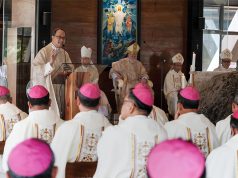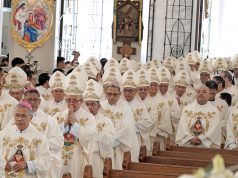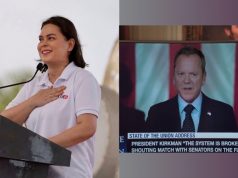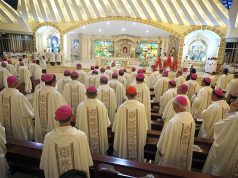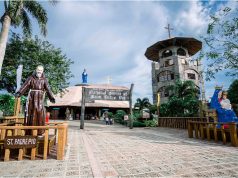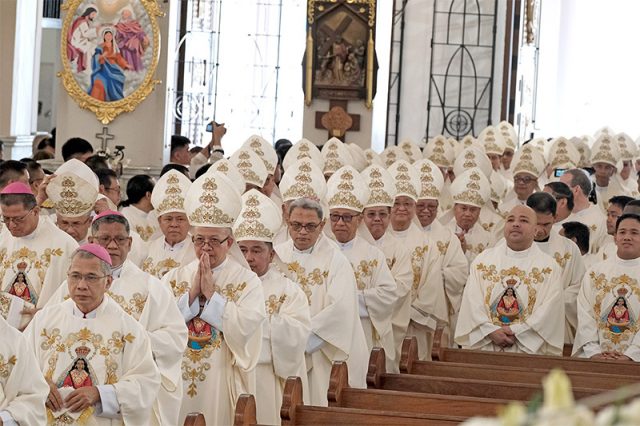
Filipino Catholic bishops on Wednesday warned the faithful against falling for a “deceptive” signature campaign to amend the 1987 Constitution, saying self-interested politicians were out to exploit the nation in such a political exercise.
“Is that good?” the Catholic Bishop’s Conference of the Philippines (CBCP) asked rhetorically, citing reports of signatures being gathered across the country for a “People’s Initiative” that it said was clearly “not the result of a careful study and discussion.”
“This is not a simple signature. By signing, you are giving our lawmakers the power to change our Constitution. The discussion may focus on economic aspects, but even senators acknowledge the possibility of broader changes if this People’s Initiative succeeds,” the 125-strong CBCP said in a statement signed by the president, Pablo Virgilio David, the bishop of Kalookan.
The bishops’ statement was issued two days after the conclusion of their bi-annual plenary assembly in Manila, where they tackled a wide range of Church and socio-political issues.
The statement titled “What is Good?” drew its scriptural reference from the tenth chapter of the Gospel of Mark, where Christ told the Rich Man that “No one is good but God alone” and instructed him to “know the commandments.”
The 1987 charter, the CBCP said, was “created to ensure the well-being of every Filipino citizen” and was crafted after a “dark period” in Philippine history, referring to the martial rule of Ferdinand Marcos Sr., father of the incumbent President Ferdinand “Bongbong” Marcos Jr.
It is the only “pro-God, pro-Filipino, pro-People, pro-Poor, pro-Life, pro-Law, pro-Family, pro-Marriage, pro-Human Rights, pro-Women, and pro-Environment” charter, the CBCP said, quoting former chief justice Hilario Davide Jr.
While the Commission on Elections has decided to temporarily stop receiving signatures gathered by charter change proponents, people “should not be complacent, as there may be other attempts for this Charter Change.”
Citing experts, the CBCP said the Constitution was not the real hindrance to progress and that addressing the economic aspects of the fundamental law need not be done through constitutional amendments.
“Our prayer is that we will not sign or agree to any petition without careful discernment, discussion, and prayer,” the CBCP said.
The CBCP had opposed previous attempts to amend the 37-year-old charter through signature drives or a constituent assembly where only lawmakers could decide on contentious issues such as term limits, preferring instead a constitutional convention with elected delegates.
In January, at least 10 bishops from the regions, including Bishop Broderick Pabillo of Taytay in Palawan, warned their flock against trading their signatures for money or other inducements offered by politicians seeking to amend the charter.




